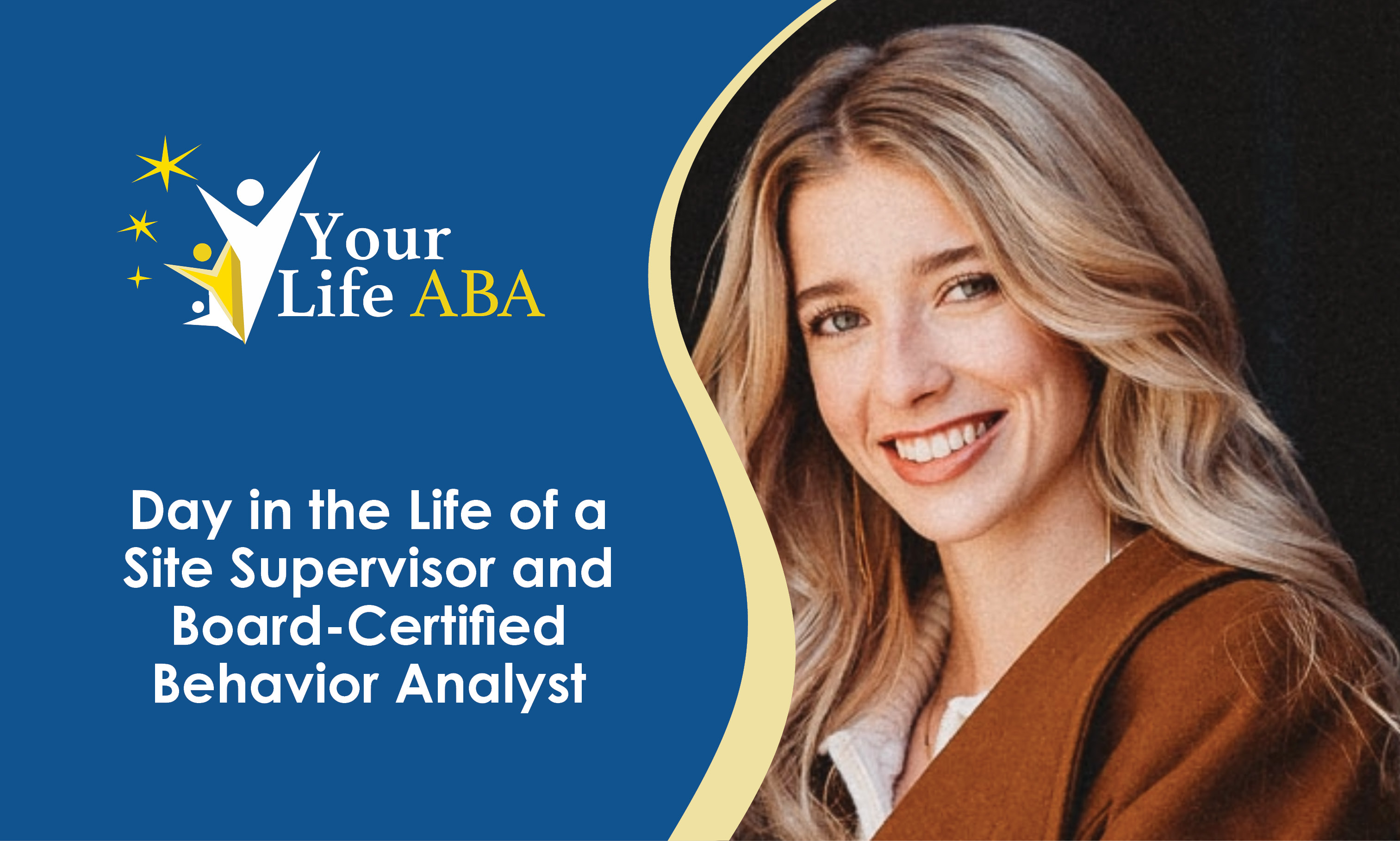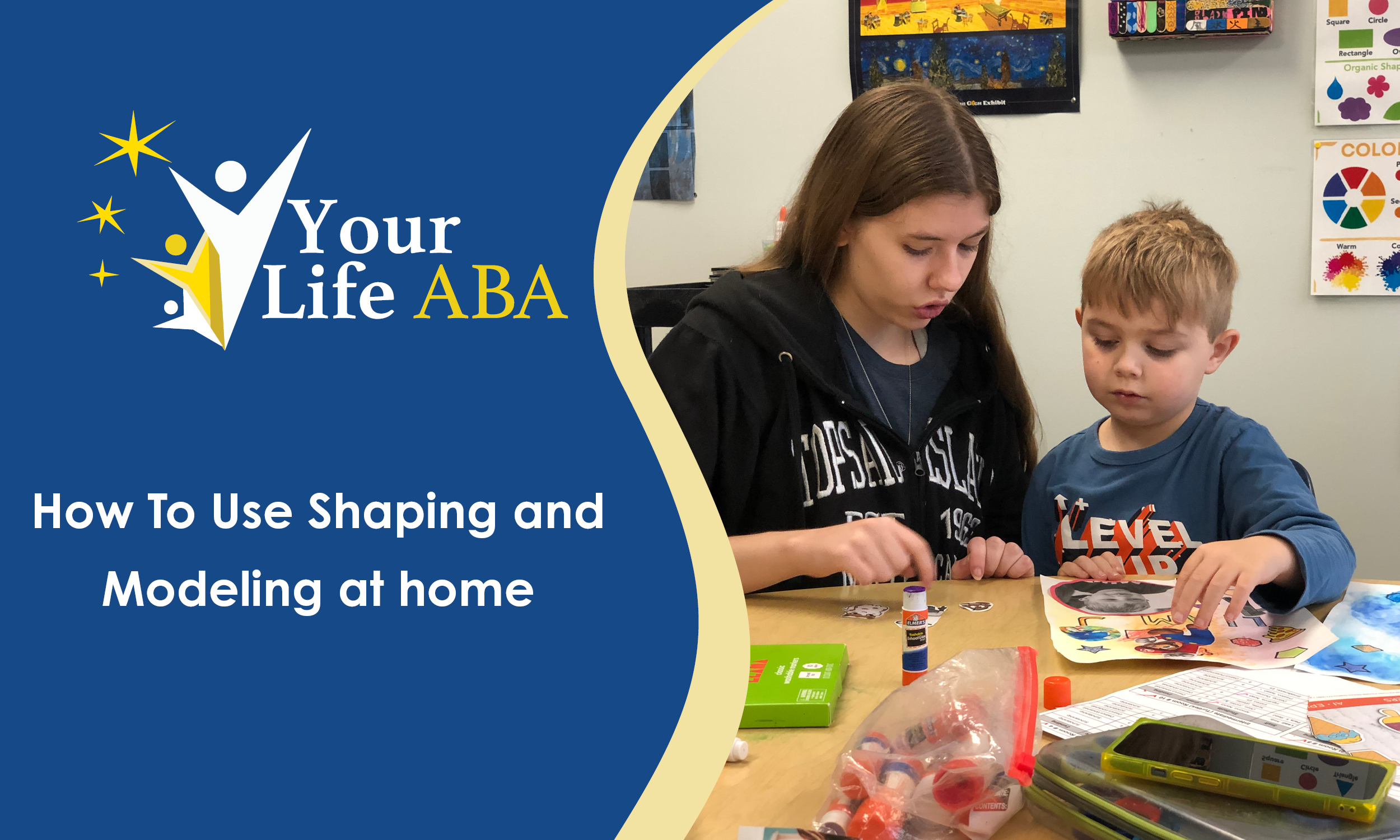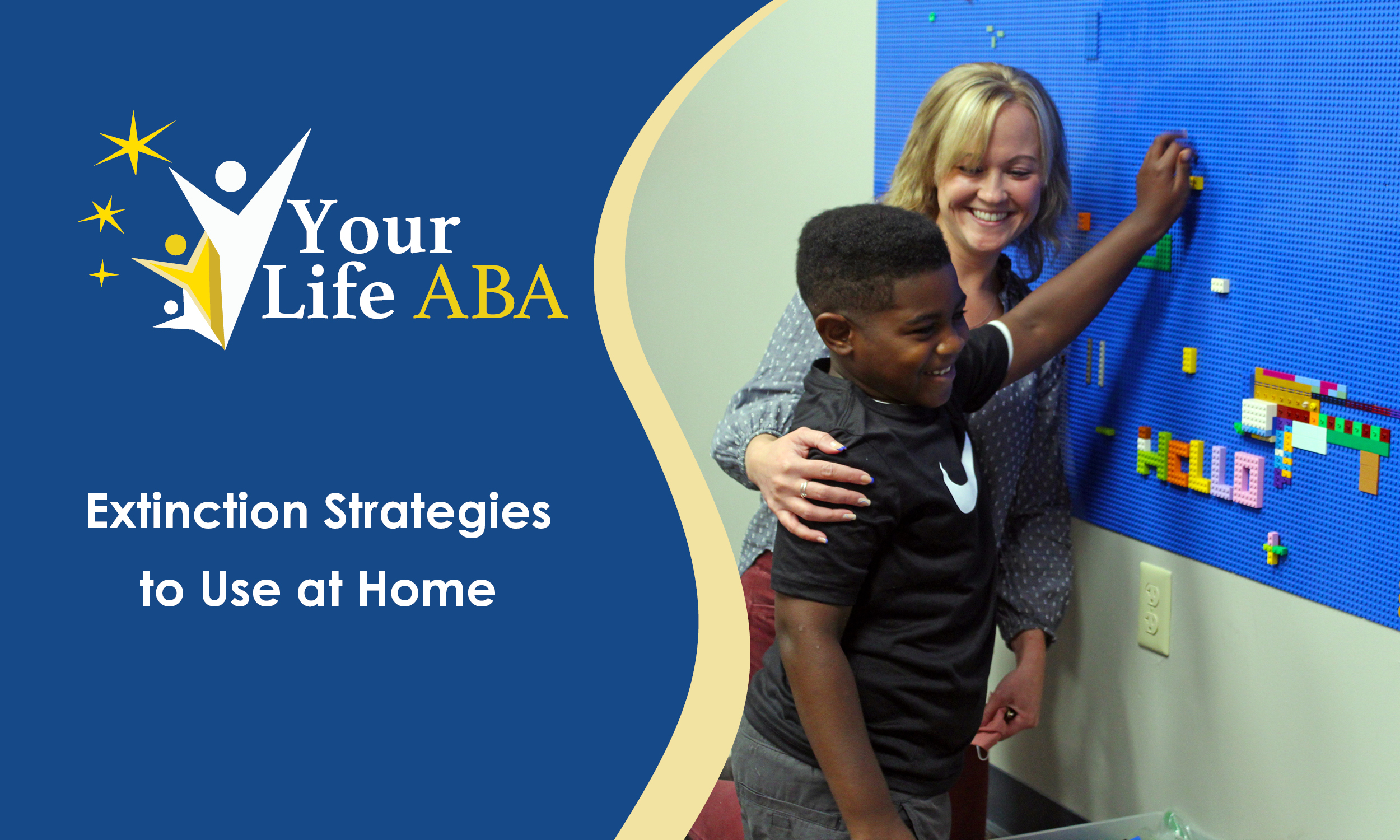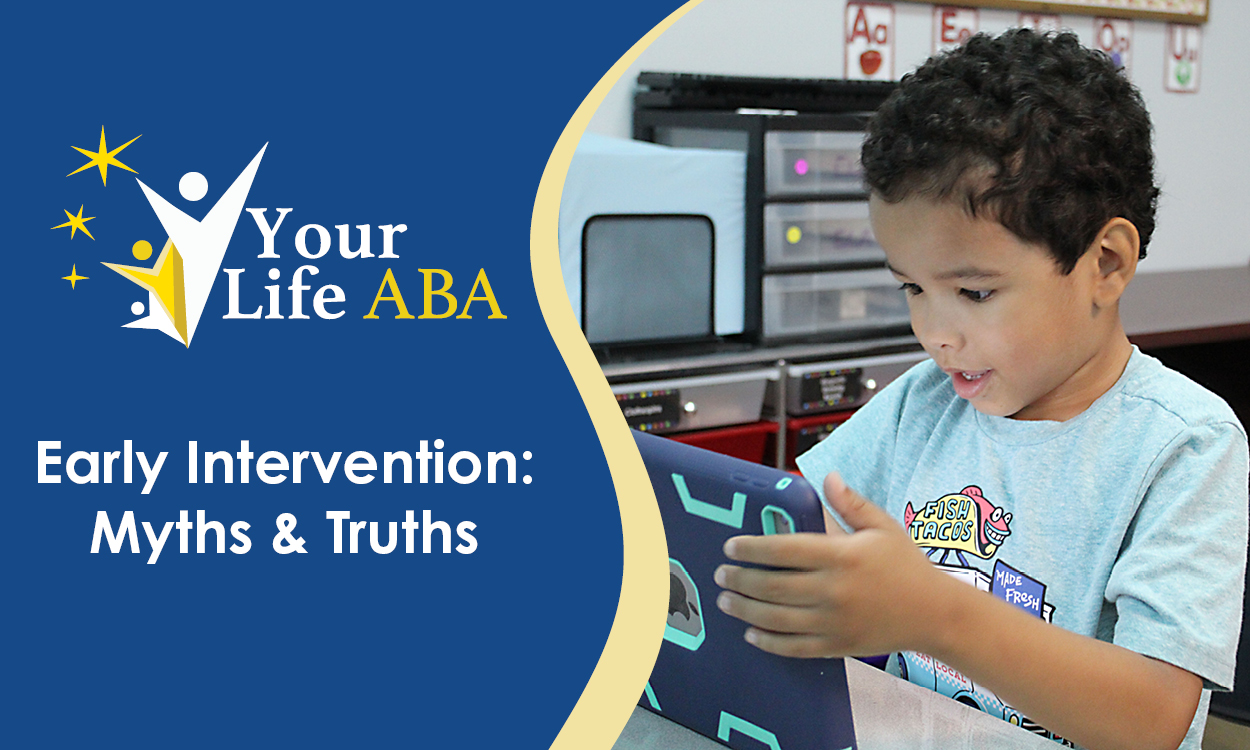Day in the Life of a Site Supervisor and Board-Certified Behavior Analyst
Posted: December 05, 2023 | Written By: Sharmin Hossain | Category:

Jessica Maltbie is a Site Supervisor and Board-Certified Behavior Analyst at the Your Life ABA clinics in Fredericksburg and Warsaw, Virginia.
Q: What is your day-to-day role at Your Life ABA?
Typically, I start my morning with many parents texting me confirming scheduling sessions if someone is sick. We have a bunch of littles, so someone is always cancelling because they’re sick and I need to coordinate sessions with the attending staff.
Depending on the day, I also do direct observation where I will go down to the clinic and directly observe the sessions with clients and make treatment changes. Some days, I take on more of an administrative role, signing off on notes that the technicians write, writing service plans, coordinating parent training, care meetings, and other things of that nature. Sometimes, I will help cover sessions and do direct client care when technicians are sick, which is very common this season in the fall and winter.
Q: What are some of the different types of work you do with your clients?
Since I was recently a technician, if I need to cover sessions for other staff, I will do direct client care. I am trained in all of them, so different supervisors will call me to cover sessions, but that just means providing the treatment plan according to what's written, so it can range from an hour and a half to three hours. I’ll also continue my supervisory role of coordinating sessions, writing plans, staff management, and training.
Q: What do you find is unique about your clinic that you are particularly proud of?
Some of my clients are adults, which I find very rare. Most companies do not work with adults with disabilities. Typically, when you think Applied Behavioral Analysis (ABA), you think young kids with autism because that's the primary clientele. So, I think being able to help a community that doesn't have many services is amazing. A lot of people recognize autism in kids, however few people tend to think about what happens after the age of 21. They still need support, whether it be gaining vocational skills or independent living skills.
Q: What is your favorite part about this job?
I have the clients that I work for come to me at adult activity centers excited to tell me about their weekend. They all love having someone to talk to. They're with us for a reason, but when they're able to just sit and talk to me, or when the little kids walk in and hug your legs, it tugs on your heart strings. These simple interactions outside of the treatment and care are my favorite part.
Q: Do you have any favorite moments or memories with a client you could share?
I have this one client. He's an adult at the adult center. He's typically pretty withdrawn and he keeps to himself a lot. Through our services, he has become much more social, so he'll talk to people and go do things. One day, the adult center was throwing a going away party for our staff and I saw him do the Macarena with his peers. It was the cutest thing.
Another one of my clients loves Halloween and he loves Disney princesses. His mom rented princesses to come to his house. He struggles a lot with things like verbal aggressions and things of that nature. So, he can say a lot of things, but I believe through our services and through helping Mom, he was able to interact with the princesses in a positive manner with compliments like, “I love your hair!” He was dressed up like Prince Eric.
With adults, you're fighting sometimes up to 30 years of bad habits but seeing their progress, positive changes and being more included in their daily lives and communities really makes me smile and proud of my work.
Want to be notified of new articles and resources from Your Life ABA? Click here to submit your email and opt into our newsletter.








